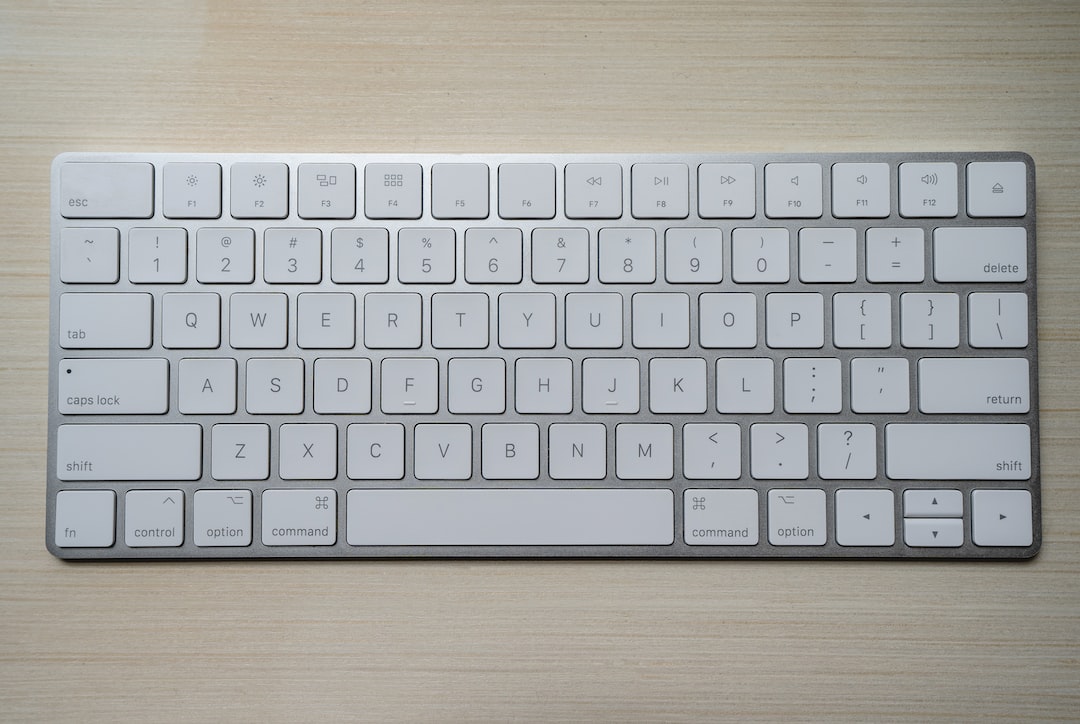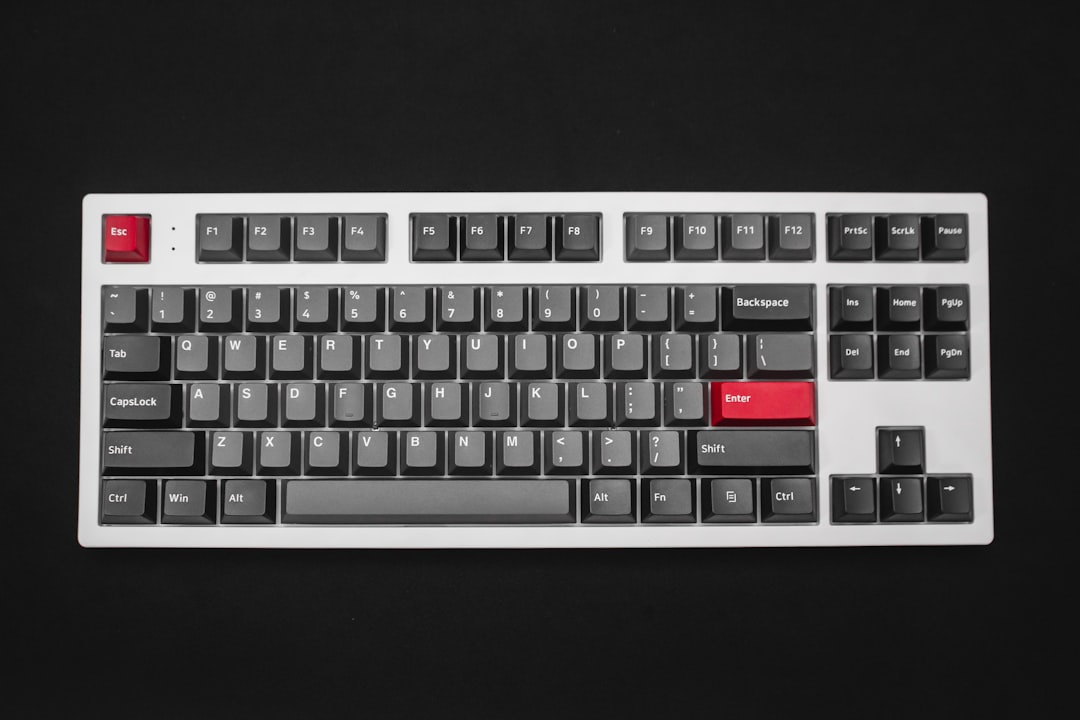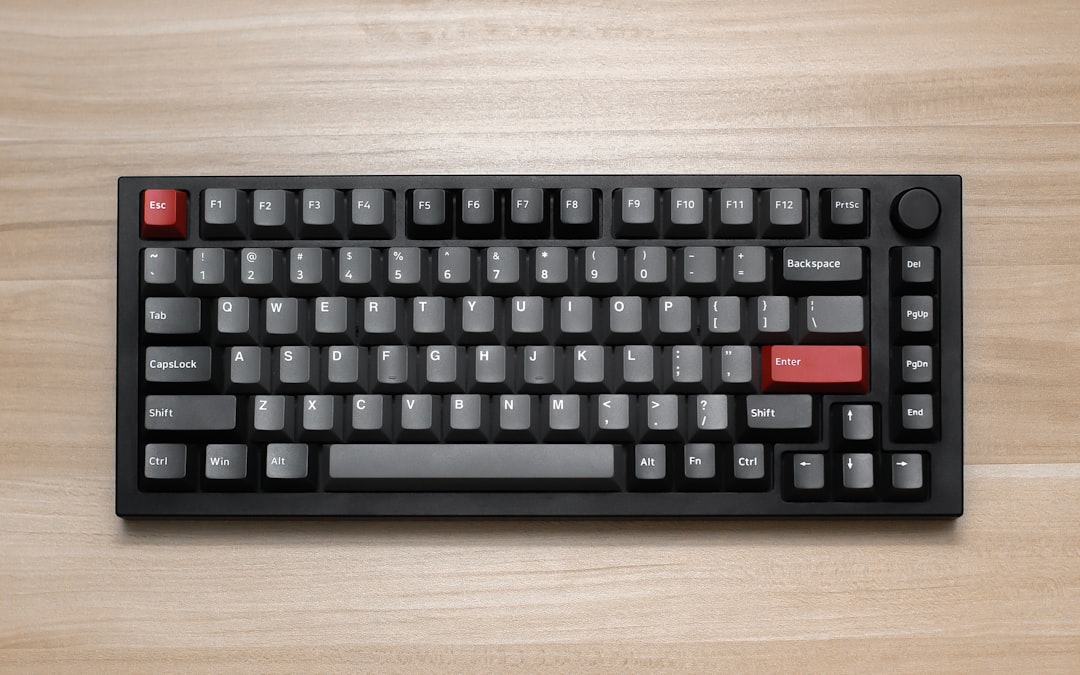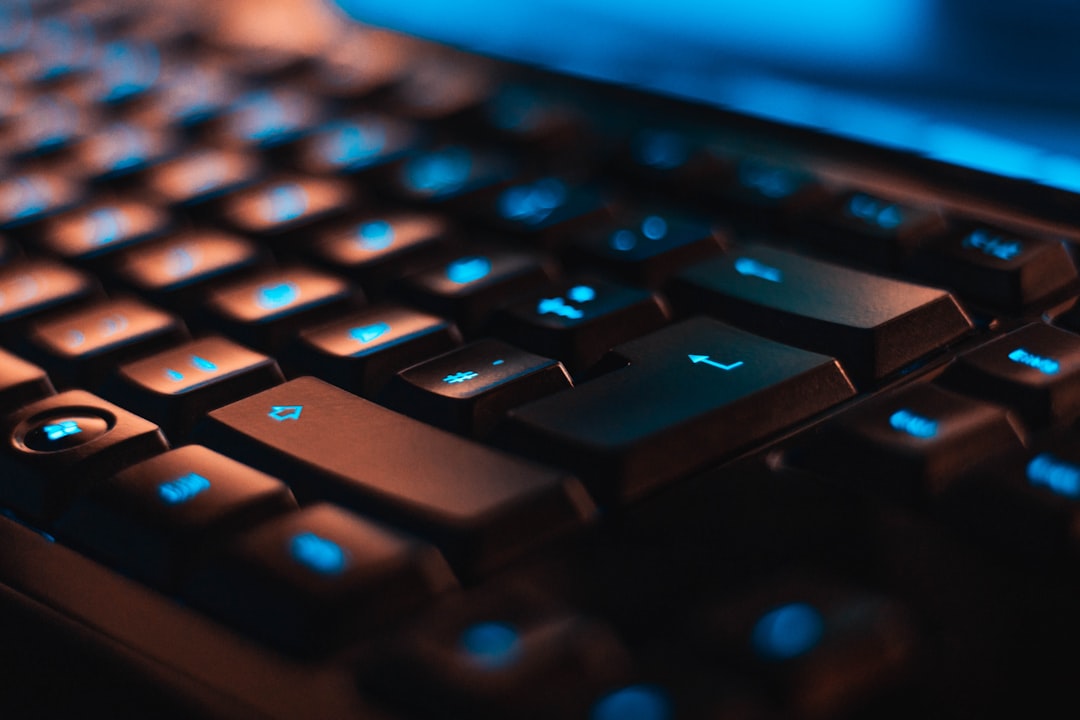Welcome to our blog post on coding tips for beginners! In today’s digital age, coding has become an essential skill that you cannot afford to ignore. Whether you are looking to build a career in the tech industry or simply want to explore your creative potential, learning to code can unlock a whole new world of possibilities.
In this blog post, we will cover 7 essential coding tips that every beginner should know. From choosing the right programming language to staying organized, we will provide you with practical tips and advice that will help you take your coding skills to the next level.
We understand that the world of coding can seem overwhelming and intimidating at first. That’s why we’ve designed this blog post to be a step-by-step guide that is easy to follow and adapt to your own learning style. Whether you are a complete beginner or have some coding experience already, our tips will help you accelerate your learning and overcome common challenges along the way.
So, buckle up and get ready to dive into the world of coding with confidence and enthusiasm! By the end of this blog post, you will have a solid foundation in the basics of coding and be ready to take on more advanced challenges. Let’s get started!
Choose the Right Language for You: Tips on Determining Which Programming Language to Learn
When you first start learning how to code, it can be overwhelming to decide which programming language to learn. There are so many different languages to choose from, each with their own strengths and weaknesses. However, with a little bit of research and self-reflection, you can determine which language is best for you and your goals.
One of the first things to consider when choosing a programming language is what you want to do with it. Are you interested in developing websites? Creating mobile apps? Building data science models? Each of these fields has its own preferred languages, and it’s important to choose a language that aligns with your interests.
Another factor to consider is the difficulty level of the language. Some languages, like Python, are known for being relatively easy to learn, while others, like C++, are more complex and may require more time and effort to master. If you’re just starting out, it may be wise to choose a language that’s a bit easier to pick up, so you can get comfortable with coding concepts before moving on to more difficult languages.
Additionally, it’s important to think about the community around the language. Are there online forums or communities dedicated to helping beginners learn? Are there plenty of tutorials and resources available online? Choosing a language with a strong community can be incredibly helpful when you’re just starting out, as you’ll have access to a wealth of knowledge and support.
Of course, it’s also important to choose a language that you find interesting and enjoyable to work with. If you’re not excited about the language you’re learning, you’re less likely to stick with it and make progress. Take some time to explore different languages and see which ones resonate with you.
Ultimately, the key to choosing the right programming language is to do your research, experiment with different options, and be willing to adapt as your goals and interests change. With the right language and plenty of practice, you’ll soon be well on your way to becoming a skilled coder!
Are there plenty of tutorials and resources available online?
Practice, Practice, Practice: The Importance of Coding Exercises and Projects
When it comes to learning a new skill, there’s no substitute for practice. This is especially true when it comes to coding. No matter how much you read about programming concepts or watch tutorials, you won’t truly understand them until you’ve put them into practice yourself. That’s why coding exercises and projects are so important.
Coding exercises are short, focused tasks designed to help you improve your coding skills in a specific area. They might focus on a particular programming concept or challenge you to write code that performs a specific function. These exercises are often part of coding courses or tutorials, but you can also find them online or in coding workbooks.
Projects, on the other hand, are larger-scale coding tasks that require more time and effort. They might involve building a website, creating a game, or developing an application. Projects are a great way to apply the skills you’ve learned through coding exercises and gain experience working on a larger coding task.
So why are coding exercises and projects so important? For one thing, they help you build confidence in your coding abilities. When you complete an exercise or project successfully, you’ll feel a real sense of accomplishment. This can be a powerful motivator to keep practicing and improving your skills.
In addition, coding exercises and projects help you develop problem-solving skills. As you work through different coding challenges, you’ll learn how to break down complex problems into smaller, more manageable pieces. You’ll also learn how to debug your code and troubleshoot errors.
Coding exercises and projects also give you the opportunity to experiment and try out new things. When you’re working on an exercise or project, you’re free to try different approaches and see what works best. This is a great way to learn more about programming concepts and discover new techniques.
Finally, coding exercises and projects are a great way to build a portfolio of work that you can show to potential employers. If you’re looking to break into the world of programming, having a portfolio of projects to showcase your skills can be a major advantage.
In short, if you want to become a proficient coder, you need to practice, practice, practice. Coding exercises and projects are an essential part of this process. So don’t be afraid to dive in and start coding! The more you practice, the better you’ll become, and the more rewarding your coding journey will be.
They might involve building a website, creating a game, or developing an application.
Learn from Others: How to Utilize Online Resources to Improve Your Coding Skills
As with any skill or hobby, it’s always helpful to learn from those who have more experience than you. When it comes to coding, there are countless online resources available to help you improve your skills and connect with others in the coding community. In this section, we’ll go over some of the best ways to learn from others online.
1. Forums: Coding forums are a great way to ask questions, get feedback on your code, and connect with other coders. Many popular programming languages have dedicated forums, so do some research to find ones that cater to your interests.
2. Tutorials: There are countless coding tutorials available online, from beginner-level introductions to more advanced topics. You can find tutorials on YouTube, coding blogs, and dedicated coding websites like Codecademy.
3. GitHub: GitHub is a social coding platform that allows users to collaborate on coding projects, share their own code, and explore other projects. You can find code snippets, entire projects, and even job postings on GitHub.
4. Meetups: If you prefer to learn in-person, attending coding meetups can be a great way to connect with other coders in your area. Many cities have coding meetups that cater to different languages and skill levels.
5. Discord communities: Discord is a popular chat platform that many coders use to connect with others in the community. There are countless Discord communities dedicated to coding, and many of them have channels dedicated to specific languages or topics.
By utilizing these online resources, you can learn from others, get feedback on your code, and find inspiration for your own coding projects. Don’t be afraid to ask questions and seek out feedback – the coding community is generally very supportive and welcoming to beginners.
Remember, learning to code takes time and practice. Don’t get discouraged if you struggle with a particular concept or language – keep practicing and seeking out resources to help you improve. The key is to stay motivated and keep learning, and with the help of these online resources, you’ll be well on your way to becoming a skilled coder.
You can find code snippets, entire projects, and even job postings on GitHub.
Debugging Tips: Strategies for Identifying and Fixing Errors in Your Code
Debugging is an essential skill in programming. No matter how experienced or skilled you are, there will always be bugs in your code. Therefore, having a set of strategies to identify and fix errors in your code is crucial for success in coding.
Here are some tips on how to debug your code effectively:
1. Understand the error message: Error messages are your friends. They are the first line of defense in identifying what went wrong with your code. When you encounter an error, read the error message carefully and try to understand what it means. Sometimes, the error message may be cryptic, but with some experience, you will be able to decipher it.
2. Check your syntax: Syntax errors are common in coding, especially for beginners. A syntax error occurs when there is a mistake in the syntax of your code. For example, forgetting a semicolon, using the wrong operator, or misspelling a keyword can all cause syntax errors. To avoid syntax errors, use an IDE (Integrated Development Environment) that highlights syntax errors.
3. Use print statements: Print statements are a simple but effective way to debug your code. Inserting print statements in your code can help you identify where the error occurred. Print statements can also help you understand the value of a variable at a specific point in your code.
4. Step through your code: Stepping through the code means executing each line of code one at a time to see what happens. This technique is useful when you have no idea where the error occurred. You can step through your code using a debugger, which is a tool that allows you to pause your code at specific points and inspect the values of variables.
5. Use comments: Comments are a way to document your code and explain what each line of code does. Adding comments to your code can help you understand what the code is supposed to do and identify any potential errors.
6. Google the error: When all else fails, Google the error. Chances are that someone else has encountered the same error as you and has found a solution. There are many online forums and communities where you can post your error and get help from other developers.
Debugging can be frustrating, but it is an essential part of programming. By following these strategies, you can identify and fix errors in your code more effectively. Remember, debugging is a skill that takes time and practice to master. Don’t be discouraged if you encounter errors in your code. Keep practicing, keep learning, and keep growing as a developer.
Stay Organized: Tips for Keeping Your Code Organized and Easy to Read
As you continue to learn and practice coding, it’s important to also focus on keeping your code organized and easy to read. Not only will this make it easier for you to understand and make changes to your own code, but it will also make it easier for others to work with your code if you collaborate on projects or share it online.
Here are some tips for staying organized:
1. Use Consistent Formatting: Consistency is key when it comes to formatting your code. Make sure to use the same indentation style, line breaks, and naming conventions throughout your code. This will make it easier to read and understand.
2. Comment Your Code: Comments are notes that you add to your code to explain what it does. This is especially important when you’re working on larger projects or collaborating with others. Be as descriptive as possible in your comments, and make sure to update them as you make changes to your code.
3. Use Meaningful Names: When you’re naming variables, functions, and classes, make sure to use names that accurately describe what they do. This will make it easier for you to understand your own code later on, and it will also make it easier for others to understand and work with your code.
4. Break Your Code Into Smaller Chunks: Instead of writing one long, complicated function or class, try to break your code into smaller chunks. This will make it easier to understand and maintain, and it will also make it easier to reuse parts of your code in other projects.
5. Use White Space: Don’t be afraid to use white space in your code to make it more readable. This includes adding extra line breaks and spaces between blocks of code, as well as using blank lines to separate logical sections of your code.
By following these tips, you can make sure that your code is organized and easy to read. This will not only make it easier for you to understand and make changes to your own code, but it will also make it easier for others to work with your code if you collaborate on projects or share it online. Keep practicing and refining these skills, and you’ll be on your way to becoming a great coder!
This will make it easier to understand and maintain, and it will also make it easier to reuse parts of your code in other projects.
Conclusion: Keep Learning and Practicing with These 10 Coding Tips
Congratulations! You’ve made it to the end of our comprehensive guide on coding tips for beginners. By now, you have a solid understanding of how to choose the right programming language, how to practice your coding skills, where to look for resources, how to debug your code, and how to keep your code organized and easy to read.
To recap, here are the 10 coding tips we’ve covered in this guide:
1. Understand the basics of programming
2. Choose the right language for you
3. Start with simple coding exercises and projects
4. Seek help and learn from others
5. Debugging strategies for identifying and fixing errors
6. Keep your code organized and easy to read
7. Practice regularly and consistently
8. Participate in coding challenges and competitions
9. Build a portfolio to showcase your projects and skills
10. Don’t be afraid to try new things and make mistakes
While it may seem overwhelming at first, coding is a skill that can be learned and mastered with dedication and practice. We encourage you to continue learning, to never be afraid to ask for help, and to embrace the challenges that come with coding.
Remember, the most important thing is to keep practicing and to never give up. Every line of code you write is an opportunity to learn something new and to improve your skills. So, keep coding, keep learning, and keep pushing yourself to become the best coder you can be. Good luck on your coding journey!





